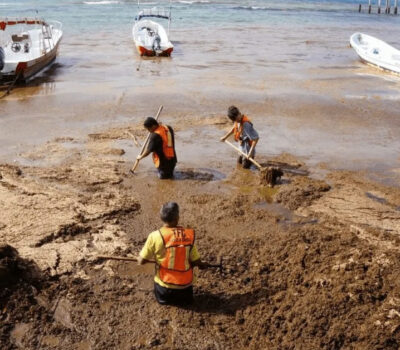How does medical care compare in Mexico with what expats are used to from their home country? In terms of quality, accessibility and affordability, the answer is very good, according to the majority of expatriates contacted for a recent survey on the subject.
The medical care they receive in Mexico
Health in Mexico: a research study found that more than three-quarters of expatriates surveyed are satisfied with the medical care they receive in Mexico, while almost a third of respondents said their health care costs are less than a quarter of what they were in their home country.
United States or Canada.
Completed by 1,129 expats, the survey also reveals the areas of Mexico where foreign residents experience the best medical care and have the healthiest lifestyles. The study was conducted and published by Best Places in the World to Retire and is the third in a series of survey reports on Mexico. Previous reports explored expat expectations about moving to Mexico and the cost of living in the country. The first question posed by the survey was: How would you rate the quality of medical care in Mexico compared to your country of origin?
While 29.7% of respondents said it is “approximately the same”, 23.2% said it is “somewhat better” and 20.1% said it is “much better”, which represents a combined total of 43.3% of all the respondents.
Only 15.9% of respondents rated medical care in Mexico as “somewhat worse” or “much worse” than in their countries of origin, while another 11.2% said they had no opinion on the subject. The survey indicated that the positive to negative relationship among respondents is well above two to one.
Chuck Bolotin , vice president of Best Places in the World to Retire, said that most expatriates use the private health system in Mexico, but added that “it is possible for an expatriate to qualify for public health care in Mexico, and many make use of it. ”
Foreign residents of the Chapala Lake area are more satisfied with the quality of medical care in Mexico, according to the survey, with 69.4% of respondents saying it is “much better” or “somewhat better” than in their countries of origin. The survey indicated that the area is an hour’s drive from Guadalajara , a city that, he said, “is generally recognized as having very good and modern hospitals.”
Mexico City offered the next best level of care with 64.3% of respondents saying it is “much better” or “somewhat better” than their home countries followed by the state of Yucatan, including Mérida (52.1%) and the area metropolitan area of Mazatlán (50.6%).
The comments of the respondents reflected the high general levels of satisfaction with the quality of medical services. “A little less advanced, but much better care and attention, doctors give you their own phone numbers,” said a survey respondent from the United States.
“Doctors have time for their patients here,” said a resident of San Miguel de Allende, reflecting a sentiment shared by other respondents. A user of the public health system commented that “once the bureaucracy is exceeded, medical attention is excellent.”
Answers to the second question of the survey: how would you rate your access to medical care in Mexico compared to your country of origin? – They were also largely positive. More than 58% of respondents said their ability to access health care is “much better” or “somewhat better”, while only 12.8% said access is “somewhat worse” or “much worse”.
Access to medical care
The area of Lake Chapala, Mazatlan, Puerto Vallarta and Yucatan lead the way in terms of accessibility, with about half of all residents in those areas saying that access to health care is “much better” than in their countries originally. “Access to medical care in Nova Scotia [ Canada ] is so bad it can not be compared, I could have waited a year for an MRI in Nova Scotia and two days went by here,” said a resident of Baja California.
One respondent cited the fact that many doctors make home visits as a factor that improves access to care medical. Another advantage of the Mexican system is that medical costs are significantly lower than in the countries of origin of expatriates, particularly in the United States, according to the survey.
In response to the question: “How would you rate the cost of medical care in Mexico compared to your country of origin?” Nearly three-quarters of respondents said it is “less than a quarter of the cost” (31.6%) or “From half the cost to a quarter of the cost” (40.7%).
Only 7.8% of respondents said that medical care costs more in Mexico than in their country of origin, although the figure increased to 18.8% among Canadian respondents and fell to only 2.6% among Americans. The survey said it presumed that “these differences are mainly the result of Canada having a state health care system.”
One respondent commented that low costs extend to veterinary services for pets, while another said that ” pharmaceutical products have a much more competitive price and in many cases the manufacturers are the same.”
Comparatively low prices for medical services also attract many short-term visitors to Mexico. The tourism dental is particularly popular. Health insurance costs are also generally lower in Mexico, according to the responses of expatriates, with only 7.9% saying that medical coverage costs more than in their country of origin.
However, almost half of the respondents said they had no opinion on the subject. The survey said it suspected that the result was largely due to the fact that the respondents did not have health insurance in Mexico and cited several reasons why they include:
• The low cost of medical care in Mexico makes it less necessary to buy insurance.
• Respondents still have health insurance in their countries of origin.
• Some may have pre-existing conditions that a Mexican insurance company would exclude, so some of these expatriates may choose to dispense with them.
“Who needs health insurance here when [medical care] is so affordable?” Said a resident of Quintana Roo from the United States. In response to the fifth question of the survey, in general, how satisfied are you with the medical care you receive in Mexico? – Nearly 60% of expatriates surveyed said they are “very satisfied “. Another 19.5% said they are “somewhat satisfied “, which means that there is a general satisfaction coefficient of 78.8%.
Only 3.9% of respondents said they were “somewhat dissatisfied” or “very dissatisfied “, while 7.1% said “neither satisfied nor dissatisfied”. More than 70% of residents in Mazatlán said they were “very satisfied” with the care healthcare they receive, closely followed by residents of Lake Chapala area (69.8%).
The respondents
“A very fast, modern and professional service, and very reasonable cost.” Canada and the United States could learn a lot about Mexico’s efficient medical care, said a Canadian resident of Mazatlan. However, some other respondents were less impressed. One cited an experience in a “dirty hospital” while another said that “medical standards for doctors in Mexico are lower than in the US.”
In addition to seeking opinions about medical care, the survey also asked respondents to rate their health- related lifestyles compared to their countries of origin, taking into account factors such as eating, exercising and controlling weight. Bolotin said the question was included “in order to judge the relative need for medical care as increased or decreased by lifestyle.”
Just over 40% of respondents said their lifestyle in Mexico is “much healthier”, 31% said it is “a little healthier” and 23.5% said it is “more or less the same” ” That left only 4.4% of respondents who said their lifestyle is “a little less healthy” and the 0.7% who said it is “much less healthy”.
Increased opportunities for exercise and access to fresh and affordable foods were the most frequently cited factors that contributed to healthier lifestyles. However, not all was good news in the front of the lifestyle, and some respondents commented that their alcohol consumption had increased since they moved to Mexico.
The number one place with the healthiest expansive lifestyle is Mazatlan, followed closely by the state of Yucatan and the area of Lake Chapala, according to the survey. Finally, the survey posed the question: how worried are you about not being able to receive the health care services you may need in Mexico compared to your country of origin?
The survey said the question was included “to test the notion that medical care in Mexico can be considered acceptable for non- challenging diseases, but that our respondents would want to return to their home country should something happen more catastrophic.” However, 55% of the respondents said that “I was not worried at all”. Another 24.4% admitted being “a little worried”, while 12.7% said they had “almost the same level of concern”.
Just under 8% of the respondents said they are “a little more worried” or “much more worried ” about the possibility that they can not receive the services they need. The survey has a theoretical margin of error of +/- 2.91% based on a population of expatriates in Mexico of 500,000.
How does medical care compare in Mexico with what expats are used to from their home country? In terms of quality, accessibility and affordability, the . . .












